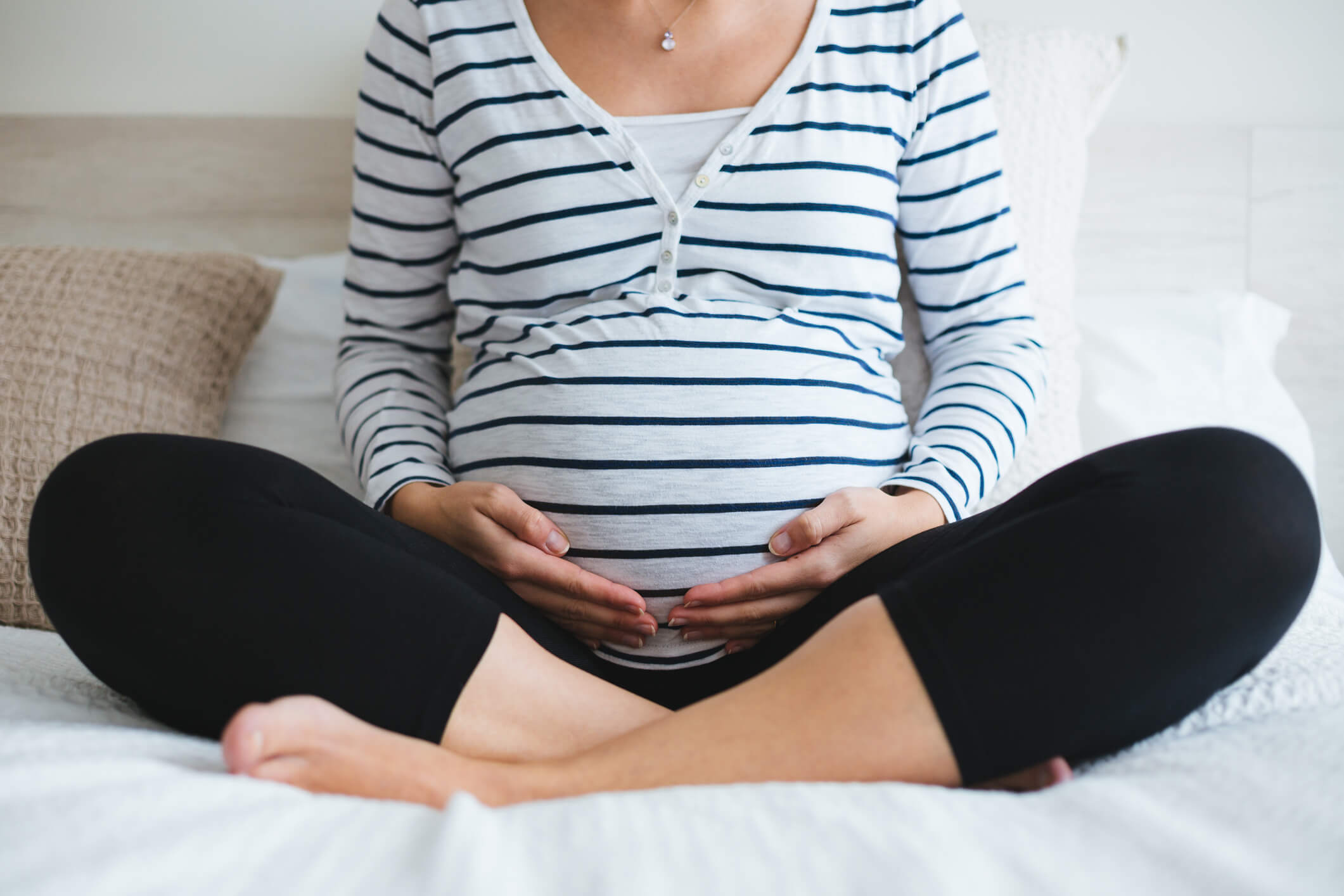-
As the expectant parent who is not pregnant, it’s hard to feel like you play a big role in baby’s life -- after all, your partner is the one growing your baby inside her, and you may even feel like in the time between conception and little league, you don’t have that big of a part to play. But just because you aren’t doing the physical labour just yet, doesn’t mean you aren’t a full, equal partner and anything less than critical in making sure baby is healthy and happy. In this article, we’ll go through the most common worries that expectant parents have, and share tips on how to be a great parent even before the baby is born.
I'm worried my partner will have a miscarriage
Miscarriage is often at the forefront of people’s minds in the beginning of a pregnancy, but it’s important to remember that it’s actually uncommon for a healthy pregnancy to be lost. The human body has the ability to recognise an abnormal pregnancy, and these are the pregnancies that are most likely to miscarry. It’s also good to keep in mind that even if your partner has had an unexplained miscarriage before, there is no reason why she won’t go on to have a healthy pregnancy.
If my partner has bad morning sickness, is the baby getting enough to eat?
‘Morning sickness’ in the first trimester is very common, although it’s uncommon for it to be restricted just to mornings! The exact cause is unknown, however it is related to the barrage of hormones flooding out of the developing placenta. If your partner is vomiting and not able to eat much, you may start to worry that baby isn’t getting enough food.
It’s unlikely to be harming baby, but seeing your partner in pain and sick isn’t exactly pleasant. Encourage your partner to have regular sips of fluid throughout the day to keep them hydrated. Tea and toast in bed in the morning may earn you some extra brownie points and help to feed your partner and growing baby. That tiny little ball of cells which is magically multiplying and growing while you sleep uses up a lot of energy, and sometimes, replacing this before any exertion whatsoever you can help make the morning run more smoothly for your partner. And finally, be patient, as nausea passes for 70% of women by week 13.
READ MORE: Why it’s so important to manage your pregnancy stress
I’m worried about how much pain my partner will be in during labour
Labour will be one of the most challenging (but rewarding!) experiences, for both of you. Understandably, the majority of the attention will be focused on mum, so some partners can feel a bit lost during labour. In the lead up to delivery day, talk to your partner about how she would like to manage her labour pain at home and in hospital, and learn about the different forms of medical pain relief available.
Once your partner has gone into labour, the pain will increase gradually, and there are periods of rest between every contraction. At home during this time, you can use heat packs, massage, a shower or bath, or even simple pain relief tablets like paracetamol. Distraction is the key, and all of these can help provide temporary relief during this time.
Once mum is admitted into hospital there will be more pain relief options on the table. Some things, like morphine or pethidine and the nitrous (or ‘laughing’) gas will relieve pain, but not remove it. This may be sufficient for uncomplicated labours. An epidural, on the other hand, will usually remove pain entirely, and is often needed in longer and more difficult labours.
I’m worried I won’t know what to do in the delivery room
You are not alone! Most partners are bewildered by this role. The best way to prepare is through talking; it will be part of discussion during pregnancy classes, and you can chat to friends and family about their own experiences in the delivery room. While each experience is unique, be prepared to provide love and support, encouragement, distraction and reassurance to your partner.
Simple labour-room to-dos include encouraging your partner to take regular sips of water or sports drinks. Some women like to be massaged and others don’t. Holding her hand and squeezing it tightly during a contraction can also be helpful. Breathing deeply and slowly along with your partner can help to distract them from the contraction pain. Most women won’t eat a lot during labour, but having a range of easily digestible snacks in the labour bag is important, for both of you!
Some partners are also concerned that they may feel sick or even faint during the birth, and it can be embarrassing to admit this. Avoid unpleasant surprises by signing up for a pregnancy class and resist the urge to cover your eyes during the birthing videos! Read up on the labour process, what to expect on the day and get informed on the different types of medical equipment you might encounter. The more prepared you are, the less likely you’ll be to need your own nurse on the day.
READ MORE: 101 on newborns
How will I know if my partner has postnatal depression?
Postnatal depression often goes under the radar, due to the combination of your busy new life and the sleep deprivation that everyone is coming to terms with! The Edinburgh Scale is the best way to check how you are both doing in the weeks following your baby’s arrival. Occasionally partners suffer from postnatal depression, which is poorly recognised as all the attention is on the baby and the mum. One of the symptoms of postnatal depression may be that you do not feel a bond with your newborn. Follow-up with your maternal and child health nurse if you are uncertain, or chat to your GP if you have concerns following completing the Edinburgh Scale questionnaire. It’s important to remember that postnatal depression is more common than you think, and it’s not a sign that you’re a bad parent or that you have failed to bond with your baby. It’s also important to recognise it early and get some help. Visit beyondblue.com.au or panda.org.au for advice and assistance.
I’m worried that I won’t know how to hold the baby
You will be amazed by how little and fragile your baby seems at birth, and even more amazed at how quickly you develop the confidence to hold, dress, wrap, change and bathe your newborn as time progresses. These are new skills which the midwives will help you with while you’re in hospital. Watching how the midwives support and hold the baby during early feeds and with the first bath will give you the confidence you need to do it yourself.
What if I’m not a good parent?
Everyone learns on the job, and the apprenticeship is tough! You will think and talk a lot about parenting styles during the pregnancy, so will start to get a feel for the type of parents you’d like to become. It’s important to talk openly about these thoughts and feelings with your partner, and will help make you a more cohesive parental unit.
At the end of the day, the connection that you have with your baby will help you be the best parent you can be. But if you’re still worried, there is plenty of support out there! You can learn about early parenting in classes during the pregnancy, during your hospital stay and from your GP. There are partner’s groups in many communities, and chatting to your friends and family who are already parents will help too. And don’t forget to read up -- there are heaps of great parenting books out there that will help you navigate this new, exciting time in your life.
New parents’ most common fears

-
Avoiding cold and flu during pregnancy
During pregnancy, women are at an increased risk of experiencing complications from the flu. Make sure you understand what steps you can take to help keep you and your baby healthy.
-
Choosing childcare that fits your family
Here’s what you need to know when choosing childcare
-
How to avoid 'dad bod'
How to keep fit and healthy with a new baby in the house
-
Expecting a baby during COVID-19
We address some common questions you may have.
-
How your extras can help during pregnancy
Use your cover to stay healthy
-
Pregnancy self-care essentials
Obstetrician Dr Chris Russell shares some advice.
Subscribe to receive the best from Live Better every week. Healthy recipes, exercise tips and activities, offers and promotions – everything to help you eat, move and feel better.
By clicking sign up I understand and agree to Medibank's privacy policy






